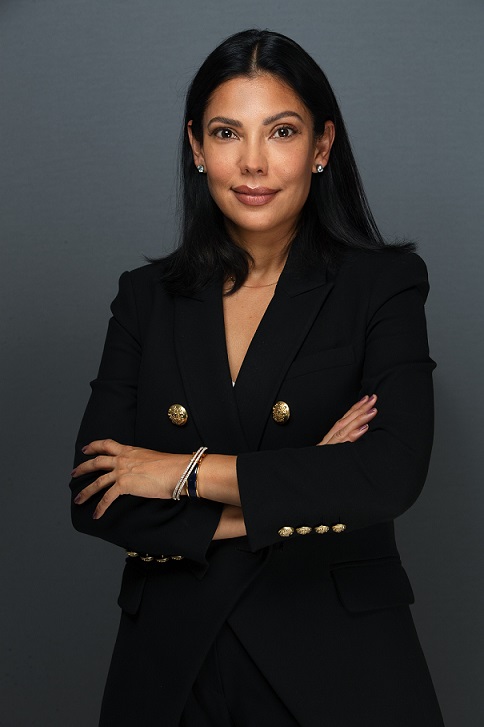In recent years, the Middle East has witnessed a notable surge in female empowerment, particularly in leadership capacities. Women are shattering barriers and making significant advancements across diverse sectors, challenging entrenched gender norms. A Kearney study underscored this transformative trend, revealing that 80% of female participants in the UAE workforce view progression to top leadership roles as imperative, with 73% expressing confidence in the leadership opportunities available in their current workplaces.
This momentum toward gender inclusivity in leadership is buoyed by government initiatives and evolving industry perspectives, emboldening women to assume influential roles and make enduring contributions within their respective fields.
Traditionally, male-dominated industries such as real estate, technology, finance, and entrepreneurship have often relegated women to roles like sales, marketing, and customer relations. This dynamic, especially prevalent in real estate, has perpetuated a norm where men predominantly occupy key leadership positions. However, as societal paradigms shift, more women are ascending to leadership roles—including CEO, CFO, and department heads—reflecting a marked progression towards gender diversity.
The UAE government prioritizes women’s leadership, spearheading efforts to promote gender equality and elevate women into decision-making roles. The UAE Gender Balance Council Strategy 2026, for instance, aims to bolster the country’s global competitiveness in gender equality reports and ensure equitable representation in leadership positions. Despite notable strides, a gender gap persists at higher echelons of leadership, as evidenced by a KPMG study revealing that 82% of respondents perceive a substantial need for further action to achieve gender diversity in board and management roles.
What are the most prevalent challenges faced by women in their professional journeys?
The journey to leadership transcends mere title acquisition or skill refinement—it necessitates a profound identity transformation. Yet, entrenched cultural norms and societal expectations often dictate rigid gender roles, impeding women’s advancement in industries like real estate. Moreover, the delicate balance between work and personal responsibilities, particularly for women with familial obligations, poses formidable obstacles to career progression and sustained engagement in the field.
To mitigate these challenges, numerous organizations and industry bodies are launching initiatives designed to empower and support women in real estate. Mentorship programs, leadership workshops, and networking opportunities serve as vital conduits for skill development and professional advancement. Concurrently, educational institutions and training providers are tailoring specialized courses and certifications to cater to the unique needs of women in the sector.
During my tenure at Devmark, I’ve found that the company and the leadership cadre exhibits exceptional approachability and demonstrates a profound understanding of the necessity for flexibility, particularly for working mothers like myself. Their unwavering commitment to championing women’s advancement within the organization culminated in our recognition as one of the Best Workplaces for Women™ 2023 in the GCC—an accolade that speaks volumes about our corporate culture. At Devmark, we take pride in a leadership ethos that not only fosters but also empowers the success of women, recognizing it as indispensable to their holistic growth, both personally and professionally.
Moreover, events and conferences dedicated to empowering women play a pivotal role in driving positive change. Recently, I participated in an event centred on Diversity, Equity, and Inclusion within the real estate sector. This gathering provided invaluable insights and showcased the commitment of numerous UAE-based construction and real estate firms to fostering workplace equality. These companies not only acknowledge the existence of biases but actively advocate for the inclusion and advancement of women in their organizational culture.
Such conferences serve as vital platforms for women leaders to network, exchange experiences, disseminate knowledge, and foster collaborations. Networking serves as a crucial avenue for women to connect with industry peers, mentors, and potential clients, expanding their professional circle and gaining access to invaluable resources and support.
Although the representation of women in the Middle East real estate industry is on the rise, there remains work to be done to close the gender gap. Empowering initiatives, alongside a focus on collaboration and networking, are imperative for cultivating an inclusive environment where women can thrive in leadership positions within the real estate sector.
As accomplished women in the industry, it is incumbent upon us to actively mentor younger professionals, sharing our insights, success strategies, and pathways to advancement within the field.
As the industry continues to evolve, a steadfast commitment to gender equality will undoubtedly enhance its success and sustainability in the years ahead. By sharing our personal journeys, challenging industry norms, and establishing clear, measurable objectives for diversity and inclusion, we can pave the way for future generations of women in Middle Eastern real estate.

